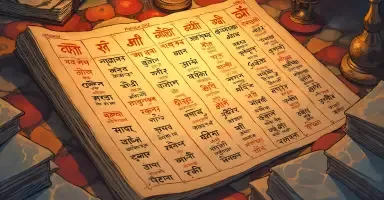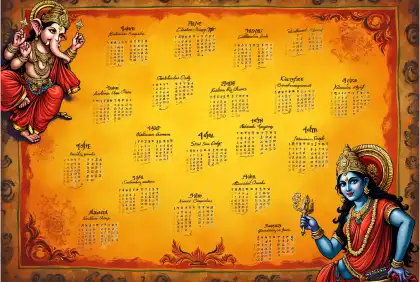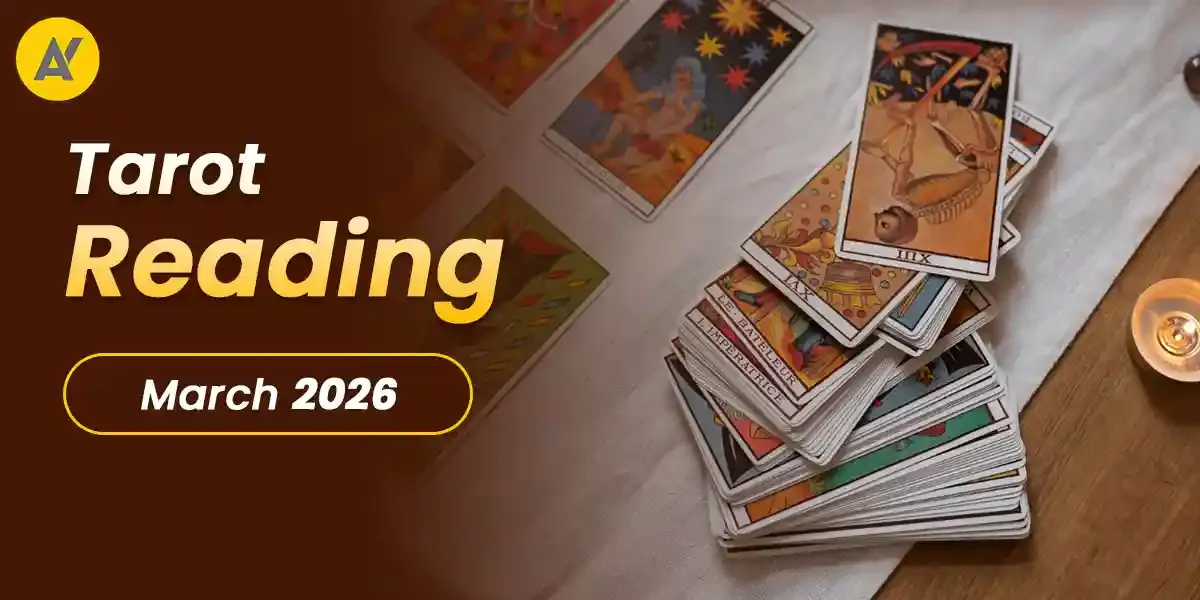
Tomorrow’s Panchang
Reading tomorrow’s Panchang helps you prepare in advance for important activities by identifying the most auspicious timings and avoiding inauspicious periods.


Ujjain, Saturday, 07 March 2026
| Tithi | Krishna Chaturthi |
| Nakshatra | Chitra |
| Karana | Bava |
| Paksha | Krishna-Paksha |
| Yoga | Vriddhi till 06:52:50 AM |
| Day | Saturday |
| Sun rise - Sun Set | 06:44:06 AM - 06:33:15 PM |
| Moon rise - Moon Set | 10:08:28 PM - 08:45:00 AM |
| Ritu | Shishir |
| Moon Sign | Libra |
| Shaka Samvat | 1947 |
| Vikram Samvat | 2082 |
| Month Amanta | Phalguna |
| Month Purnimanta | Chaitra |
| Rahu Kaal | 09:41:23 AM to 11:10:01 AM |
| Yamaganda | 02:07:19 PM to 03:35:57 PM |
| Gulika Kaal | 06:44:06 AM to 08:12:44 AM |
| Abhijit | 12:15:00 PM to 01:01:00 PM |
Whether you're planning a pooja, starting a new venture, or simply curious about the good time for tomorrow, knowing the planetary alignment beforehand helps you move through the day with confidence and clarity.
Well, you don't necessarily have to be an astrologer to read and understand Panchang. Think of it as a tool for seeking to live in harmony with the cosmic flow. That said, let's find out how it works and why it's worth checking every evening.
👉 Also read: Today’s Panchang
How to Read Tomorrow’s Panchang?
The word Panchang means “five limbs” in Sanskrit, representing the five celestial components that define a day’s energy:
Tithi (Lunar Day): Tithi indicates the phase of the moon, which is key to understanding emotional and spiritual influences.
Vaar (Weekday): Vaar is simply a day of the week. Each day is governed by a planet, shaping its overall tone. For example, Monday (Moon) brings calm, while Thursday (Jupiter) is ideal for wisdom and growth.
Nakshatra (Lunar Constellation): Nakshatra affects how we think, feel, and interact with others.
Yoga: Yoga is the unique combination of the Sun and Moon that impacts overall harmony.
Karana: Karana means half of a Tithi and is used to find good or bad timings for specific tasks.
By examining these together in the panchang for tomorrow, you get a clear picture. Apart from that, you can act when the energies support you.
Why Should You Check Tomorrow’s Panchang?
Before starting something important, you’ve probably wondered: “Is tomorrow a good day?” or “What’s the good time for tomorrow?” Panchang answers that.
Here’s what you gain:
Plan ahead with precision: Whether it’s investments, property deals, or ceremonies, timing makes a difference.
Avoid hurdles: Stay clear of inauspicious periods like Rahu Kaal and Yamagandam.
Stay spiritually aligned: Know when the cosmic forces support prayer, meditation, or healing.
Use time wisely: Good timing for tomorrow helps you stay prepared and focused.
👉 Pro tip: Check tomorrow’s Panchang each evening, so you start your day without second-guessing.
Not Sure How to Interpret It All?
Don't worry if all this sounds too technical. Our experienced astrologers are here to guide you!
Talk to an astrologer on Astroyogi to understand what tomorrow’s Panchang means specifically for you, based on your birth chart and goals. Get clarity on whether it’s the right time to take a leap or wait a little longer.
How Tomorrow’s Panchang Can Help in Finding Auspicious Muhurats?
Tomorrow’s Panchang acts as your first guide to understanding the cosmic flow of the next day and even plans on calculating Shubh Horas. It shows which parts of the day carry supportive energy—through tithi, nakshatra, yoga, and karana and which periods are best avoided, like Rahu Kaal or Gulika Kaal.
If you’re new to astrology, the Panchang makes it simple to identify tomorrow's good times and bad times, much like checking the weather forecast before stepping out. And if you read it regularly, you’ll notice how daily patterns connect with your own experiences, giving you deeper clarity to plan your actions with confidence.
Once you have this overview, you can then refine it further to identify Muhurats, those precise, auspicious times for tomorrow suited for specific activities such as starting a new project, performing a puja, or making a big decision. In other words, tomorrow’s Panchang gives you the big picture on Choghadiya, and Muhurat points you to the exact moments within that picture when success is most likely.
Regional Variations in Panchang (North vs. South India)
Did you know that the Panchang differs slightly depending on where you are in India?
North Indian Panchang: Follows the Purnimanta system (month ends on full moon).
South Indian Panchangam: Follows the Amanta system (month ends on new moon).
While both are accurate, their structure and interpretations can vary. That’s why Astroyogi provides region-specific Panchang data, so you’re always viewing timings relevant to your location.
All in all, whether you're deeply spiritual or just want to make better decisions, the tomorrow's Panchang is a valuable daily tool. It connects you to something greater, the rhythm of the universe, and reminds you that timing is everything.
Before the day begins, check your Panchang.
Before making that big move, consult our astrologers.
Before you guess, align with the stars.
Start your tomorrow with Panchang on Astroyogi.





































